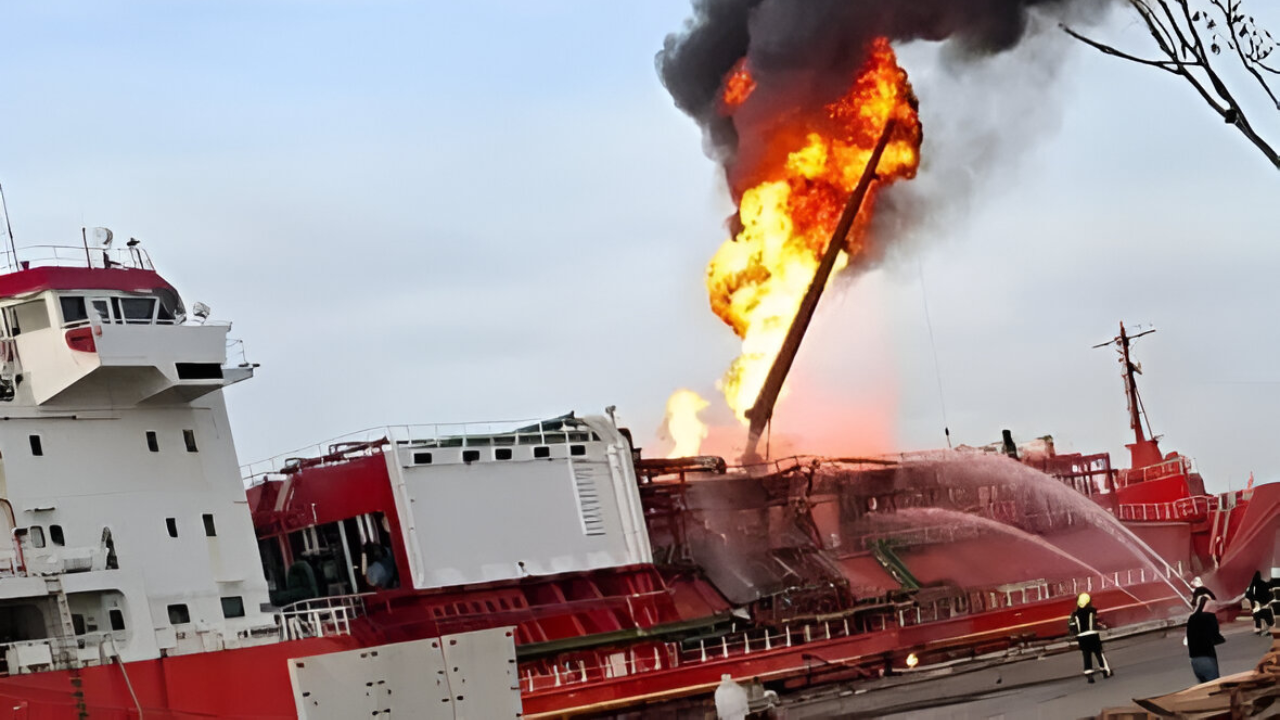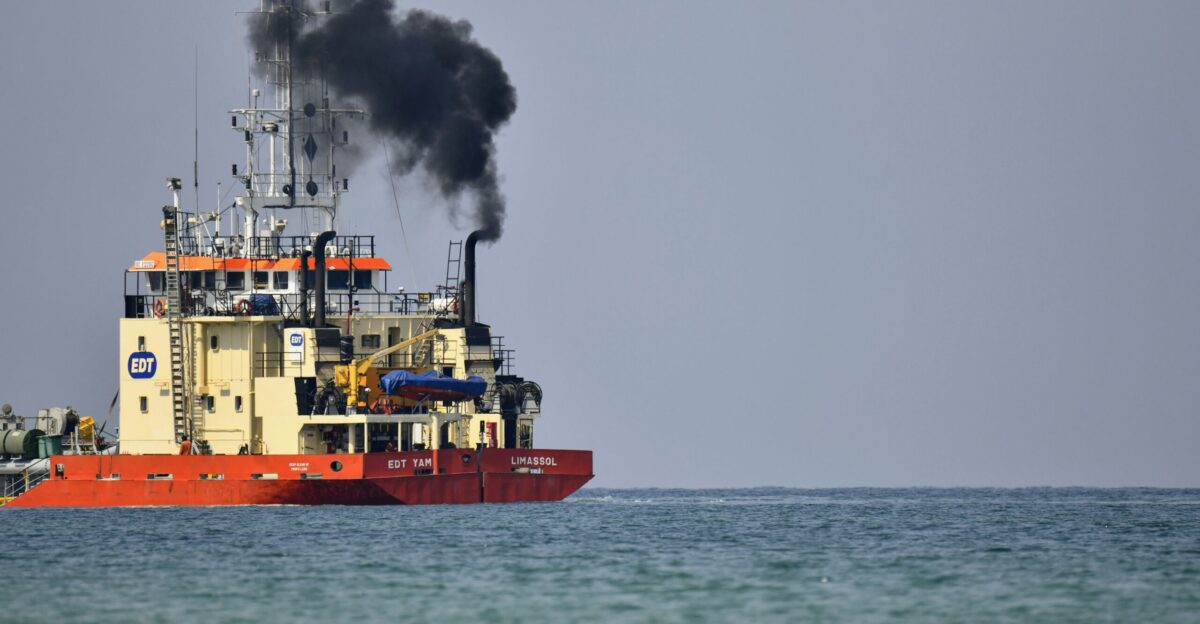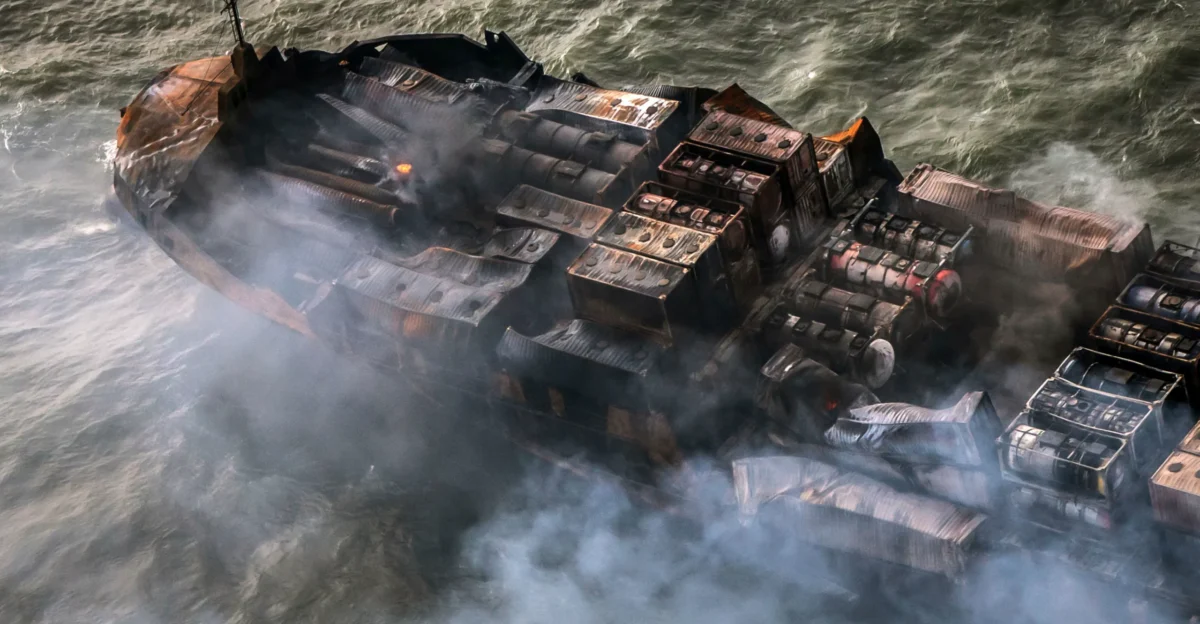
Flames lit up the Danube River as the Turkish tanker ORINDA burned through the night, its hull glowing and smoke drifting toward Romanian villages. The vessel, carrying 4,000 tonnes of liquefied petroleum gas (LPG), had been struck during a Russian drone attack targeting Ukraine’s vital export corridor. As emergency crews watched for signs of escalation, families on the Romanian shore gathered outside, listening to the crackle of burning fuel and wondering how close disaster might come.
Escalating Drone Strikes and a Narrow Escape
The attack on the ORINDA was part of a broader Russian campaign to disrupt Ukraine’s Danube export routes, which have become critical for moving food and fuel since Black Sea ports were blockaded. Izmail, a key Ukrainian port just across the river from Romania, has faced repeated drone strikes aimed at crippling these supply lines. The ORINDA, a civilian tanker loaded with highly volatile LPG, became an unintended symbol of the region’s vulnerability. The risk of a catastrophic explosion extended across the river, prompting Romanian authorities to act swiftly—even though no drones had entered NATO airspace.
Initial reports about evacuations varied, with early estimates suggesting up to 150 residents might be moved from the village of Plauru. Romanian officials later clarified that 15 people were first relocated, but as the situation developed, the evacuation expanded to include both Plauru and Ceatalchioi, ultimately moving around 300 people to safety. Families left with pets and essentials, underscoring the speed and unpredictability of cross-border emergencies along the Danube.
Border Communities on Edge

For communities along the river, the attack brought the war uncomfortably close. Residents described seeing flames and smoke rising from the opposite bank, a stark reminder that the conflict’s reach is not confined by national borders. Many worried about livestock, property, and the uncertainty of when they could return home. Emergency teams remained on high alert, aware that if the tanker’s structure failed, the resulting blast could have a radius of up to five kilometers—potentially affecting Romanian territory.
The psychological toll was immediate. Even after the fire was contained and residents allowed to return, anxiety lingered. The Danube, once a symbol of connection, now felt like a fragile frontline. Local leaders warned that the situation remained dangerous, and families braced for the possibility of future strikes.
Shipping and Energy Markets React

The strike on the ORINDA sent shockwaves through the shipping industry. Commercial operators quickly rerouted vessels away from the Danube’s exposed segments, and insurers began reassessing premiums for ships traveling near Ukraine’s ports. The incident highlighted the risks faced by neutral vessels in conflict zones and raised questions about the long-term viability of these trade arteries under persistent drone threats.
Energy traders also felt the impact. Izmail is a crucial outlet for fuel exports, and the loss of a 4,000-tonne LPG cargo was both symbolically and operationally significant. Traders began exploring alternative routes through Romania, Bulgaria, or Turkey, though such diversions increase costs and reduce efficiency. Analysts noted that the fear and uncertainty generated by the attack—and the resulting spike in insurance rates—could disrupt regional supply chains more than the immediate loss of fuel.
International Response and Security Concerns
The attack drew swift condemnation from Romania’s Defense Ministry, which called it a dangerous breach of international norms that endangered civilians near NATO territory. While the incident did not trigger a NATO Article 5 response, it forced alliance planners to confront the reality that indirect consequences of the war—such as a potential tanker explosion—could have cross-border effects.
NATO responded by expanding surveillance along its eastern flank, and the European Union began reviewing security protocols for grain and energy corridors. The incident underscored the growing risk that drone warfare poses to civilian infrastructure and highlighted the need for improved air defense and emergency planning in border regions.
Environmental and Economic Fallout

Environmental specialists warned that the prolonged burning of millions of liters of LPG could harm air quality and stress the Danube’s ecosystems. While initial assessments found limited immediate contamination, experts cautioned that repeated incidents could have cumulative effects on the river and surrounding communities.
Economically, the crisis rippled through local businesses. Ferry operators, small shops, and agricultural traders faced losses during the evacuation, while ports farther from the conflict zone saw increased inquiries as shippers sought safer alternatives. Insurers specializing in high-risk zones reported a surge in demand for expanded coverage.
Looking Ahead: A Region on Alert

As Romanian authorities allowed residents to return home, officials emphasized that the threat remains. With Russian drone strikes continuing to target port infrastructure and multiple vessels hit in the Odesa region in 2025 alone, the risk of cross-border incidents persists. Romania and its neighbors are investing in air defense, surveillance, and emergency response, recognizing that resilience now depends on adapting to a new era of drone-driven instability. The ORINDA incident stands as a stark warning: in today’s conflicts, the line between battlefield and civilian life is increasingly blurred, and the stakes for border communities have never been higher.